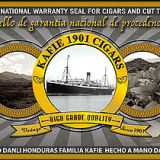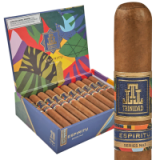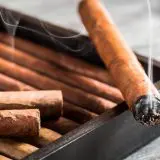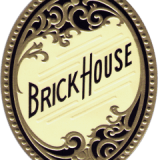When it comes to aging and its impact on cigar tasting, knowledge is key. Aging cigars can have a profound effect on the flavor of your smoke. It’s important to understand how age impacts a cigar before you decide to purchase one. Cigars are unique in that they require special care and attention when aging them.
Contents:
Aging cigars involves storing them in a humidor, which helps maintain their moisture content and keeps them fresh for an extended period of time. As cigars age, the flavors become more complex and balanced as the tobaccos blend together over time. The longer you allow your cigar to age, the smoother it will taste with fewer harsh notes or bitter undertones from unaged tobacco leaves.
The process of aging can also help reduce nicotine levels in cigars, making them easier to enjoy without feeling overwhelmed by too much nicotine at once. This makes aged cigars ideal for those who may be new to smoking or looking for something milder than what’s typically found on store shelves today. Aging also adds layers of complexity that can bring out subtle nuances that would otherwise go unnoticed if left unaged, adding another dimension of flavor that experienced smokers can appreciate even more than novice ones might.
In addition to helping create richer flavors, properly aged cigars offer additional benefits like better draw resistance due to the natural oils found within tobaccos slowly breaking down over time and allowing air flow through the body with ease – something newer cigars often lack until they’ve been given enough time in storage containers such as humidors or jars sealed tightly with cedar lids or Spanish cedar strips inside.
Understanding how aging affects a cigar’s flavor is essential for getting maximum enjoyment out of every smoke session no matter your experience level; while there’s no exact science behind knowing when a cigar has reached its peak flavor profile, learning about proper storage techniques and understanding why certain types of tobacco require different periods of aging should provide any smoker with enough insight into this area so they can make informed decisions about their purchases accordingly.
Aging Overview
When it comes to aging and cigar tasting, there is much more than meets the eye. Aging can bring about a variety of different changes in cigars that impact their taste. Understanding the effects of aging on cigars can help you choose the right smoke for your palate and preferences.
Aging occurs when tobacco leaves are left to dry for a period of time before they are made into cigars. During this process, some of the harsher characteristics of tobacco leaves will start to dissipate over time, resulting in a smoother flavor profile. The longer the leaf is aged, the more mellow its flavor becomes. This can also result in an increase in sweetness or even nutty notes depending on how long it has been aged for. As flavors change over time due to oxidation and other processes, new complexities may arise that weren’t present when the cigar was first rolled.
One important factor to consider when aging cigars is humidity control; too little or too much moisture can affect both how quickly a cigar ages as well as its overall quality. If a cigar is stored at too low a temperature then mold could develop while storing it at too high temperatures could cause fermentation which affects its flavor profile negatively. Therefore, proper storage methods should be followed if you plan on aging your cigars for an extended period of time so that they remain fresh and flavorful throughout their entire life cycle.
The Aging Process
Cigars are made of a blend of different tobaccos, and each type of tobacco has its own unique flavor characteristics. The aging process is what brings out these flavors and makes them more complex. Aging takes place over time, as the natural oils in the tobacco leaves slowly break down into simpler molecules that can be tasted by smokers. This process changes the flavor profile of the cigar significantly, making it smoother, richer, and often more nuanced than when it was first rolled.
The length of time a cigar spends aging can have a huge impact on its taste. Generally speaking, cigars that have been aged longer tend to be smoother and mellower than those with shorter aging periods. This means that smokers who prefer milder smokes may opt for cigars that have been aged for at least two years or longer while those looking for bolder flavors should look for ones with shorter aging times such as one year or less.
Aging also affects how well cigars hold their shape during smoking – older cigars tend to burn slower and cooler which can make them easier to enjoy without having to relight them frequently or worry about uneven burning patterns due to improper rolling techniques used during manufacture. Properly-aged cigars will produce thicker smoke which adds an extra dimension to the overall tasting experience for any smoker.
Cigar Tasting Basics
Cigar tasting is an art that requires both knowledge and experience. For those looking to get started in the world of cigar appreciation, it is important to understand the basics of cigar tasting. To start, understanding aging plays a major role in determining how well a cigar will taste. Aging imparts complexity to tobacco by allowing various compounds within the leaf to interact with each other over time. This interaction results in complex aromas and flavors that can be difficult for novice tasters to pick up on.
In order to properly assess the flavor of a cigar, it helps to have a good palate for recognizing different types of tobacco flavors. Developing this ability takes practice and learning about various tobaccos from around the world is essential for developing an understanding of which flavors may come through during smoking. It also helps to learn what types of wrappers are used on cigars and how these wrappers affect their taste profiles as well as how they burn while being smoked.
Having an understanding of proper lighting techniques when it comes time to smoke your favorite stogie can make all the difference when trying new blends or brands. Knowing how long each stick should be lit before taking draws off it ensures optimal flavor extraction without burning or charring too much tobacco at once, which can lead to unpleasant tastes if done incorrectly. Following these tips will set any aspiring aficionado up for success on their journey towards becoming a master taster.
How Age Affects Flavor
Age has a significant impact on the flavor of cigars. While the tobacco itself may remain unchanged, aging allows its components to interact with each other in different ways, which creates complex and interesting flavors that can’t be found in unaged cigars. Over time, these changes create new aromas and taste notes such as cedar wood, earthy tones, sweetness, and more. Aging also removes any harshness or sharpness from the smoke, leaving behind a smooth and balanced cigar experience.
The process of aging cigars is not an exact science; there are many factors that can influence how a cigar tastes over time. Temperature and humidity levels will affect the rate at which flavors develop while storing them in proper humidors helps maintain their integrity during long-term storage. The type of wrapper leaf used on the cigar can also have an effect on its taste when aged – for instance Cuban cigars tend to age much better than non-Cuban varieties due to their high quality wrappers.
Different types of tobaccos will also age differently depending on their origin and curing processes; for example, Maduro tobaccos often exhibit sweeter notes after being aged for several years whereas Connecticut Shade tobaccos may become smoother but retain less complexity when aged. Understanding how different tobaccos react to aging is key to getting the most out of your cigar smoking experience by tailoring it specifically to your palate preferences.
The Benefits of Aging Cigars
Aging cigars has long been a practice that can significantly improve the taste and texture of the cigar. While it may be difficult to comprehend why this process is beneficial, it is important to understand how aging cigars can enhance your smoking experience.
Aging cigars adds complexity and depth to the flavor profile. Over time, some of the harsher flavors present in fresh cigars will mellow out as they age in humidors or other storage solutions, allowing for more subtle notes to shine through. This provides a much more enjoyable smoking experience with nuances that are often hard to detect when smoking freshly made cigars.
Moreover, cigar aficionados note that aged cigars tend to burn smoother and slower than their younger counterparts due to the oils that are released over time during aging. This makes them much easier on both the palate and throat which can lead to an overall better smoke session than one experienced with unaged sticks. Many smokers find that older tobacco releases less nicotine into their system which makes it easier for them enjoy multiple smokes without becoming overwhelmed by nicotine-related effects such as headaches or dizziness.
It is worth noting that while not all tobaccos benefit from being aged – some actually become worse – those tobaccos specifically bred for aging usually develop distinct characteristics over time including rich aroma and earthy undertones which provide a unique and highly desirable taste profile compared to non-aged varieties of similar blends.
Exploring the Different Aromas
Cigar tasting is a unique and enjoyable experience that involves the exploration of many different aromas. As we age, our senses become more sensitive to various flavors and fragrances in cigars. Through this heightened awareness, aging can have an impact on cigar tasting experiences. Different notes of wood, earthiness, leather, nuts, spices and sweetness may be detected as one ages.
As someone’s taste buds evolve with time and practice, they are able to better identify these scents that linger after a puff of smoke has been exhaled. Aroma recognition takes patience and dedication to learn as some aromas require time to develop before being noticed. Learning how each flavor affects your palate can help you understand the aging process better when it comes to cigar smoking.
Experienced tasters are often able to detect subtle nuances between different types of cigars from around the world which would not be noticed by those who lack knowledge or experience in this area. Comparing two similar brands side-by-side is also another great way for anyone looking to explore the range of aromas present within cigars; noting down any differences between them will further aid understanding how aging impacts their flavor profile over time.
Factors to Consider When Aging
When aging cigars, a number of factors should be taken into account. Temperature and humidity levels are essential to ensure the best taste experience possible. A humidor should be kept at around 70% humidity and between 65-72 degrees Fahrenheit for optimal storage conditions. Too much or too little moisture can cause the cigar wrapper to dry out or become soggy, respectively, which can significantly alter its flavor profile.
The length of time a cigar is aged is also important when it comes to tasting results. Different tobaccos require different amounts of aging before they reach their peak flavor potential; some may take months while others might need years before they are ready to smoke. Experimenting with different lengths of aging times will help you find what works best for your particular tastes in terms of strength and complexity.
Another factor that affects the way a cigar ages is how it’s stored in the humidor itself – either individually or in boxes with other cigars. Storing them individually helps each one age evenly as there won’t be any overcrowding or competition for space from other cigars that could affect the rate at which they age. On the other hand, if you choose to store them together in boxes, make sure that all cigars have enough room so none get damaged due to crushing by those on top of them during prolonged storage periods.
Preserving the Quality of Your Cigars
As cigars age, the tobacco’s natural oils begin to evaporate and a gradual transformation of flavor occurs. While some cigar aficionados enjoy this process, others are looking for ways to preserve the quality of their cigars over time. There are several methods for preserving the flavor of your cigars that can help you maintain a consistent taste throughout the aging process.
One way to ensure that your cigars remain flavorful is by using a humidor. Humidors regulate humidity levels in order to maintain an optimal environment for storing cigars, keeping them fresh and maintaining their flavor profile. They also prevent moisture from seeping into the cigar and affecting its taste as it ages. Properly seasoning your humidor with distilled water or propylene glycol solution will keep it functioning properly and protect against mold growth.
Another method of preserving your cigar’s flavor is through proper storage techniques such as storing them in airtight containers or bags which can be found at most tobacconists or online retailers. This prevents excess air from getting into the container which can dry out and degrade the cigar’s taste over time, while also preventing any external odors from entering inside and affecting its aroma. Many experts recommend storing each individual cigar separately so that they don’t rub against each other which could cause damage to their wrappers or affect their flavors in unwanted ways.
By taking these steps, you can protect your investment in high-quality cigars by ensuring that they stay fresh over time and provide you with consistent enjoyment as you smoke them throughout life’s journey.











